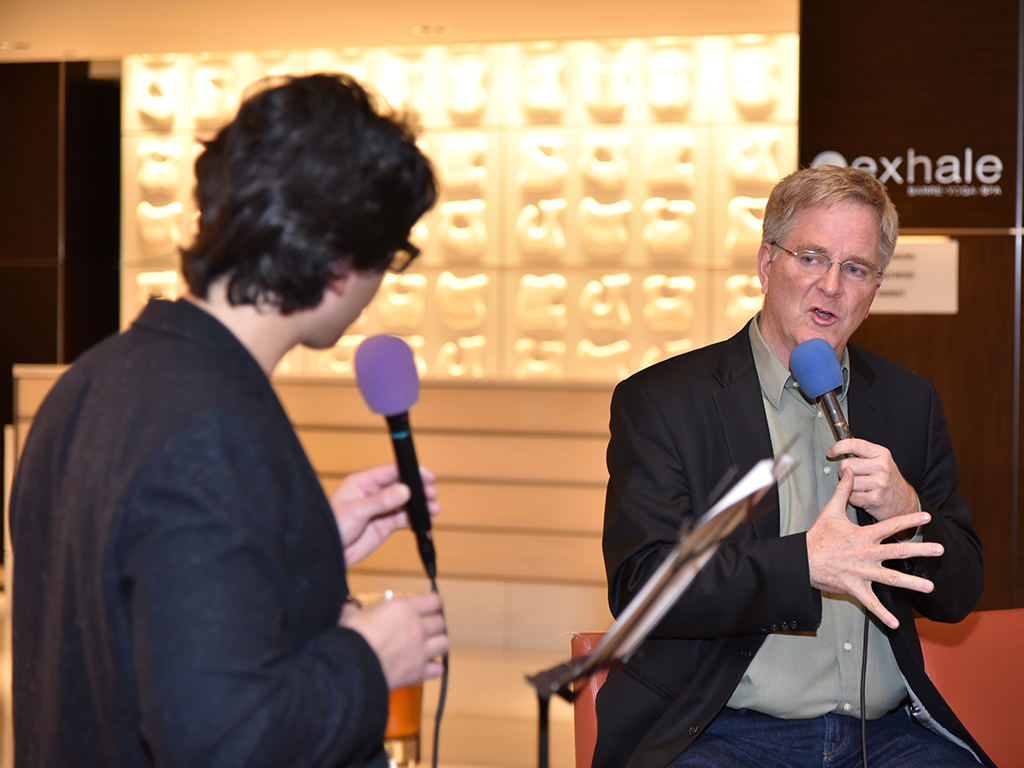CPB urges FCC to preserve public TV coverage in spectrum auction
WASHINGTON, D.C. — CPB’s Board of Directors unanimously approved a resolution Thursday urging the FCC to avoid allowing “white areas” that would lack public television coverage after the upcoming spectrum auction and channel repacking.
The resolution followed a meeting Tuesday in which network broadcasters and CPB management met with FCC Chairman Tom Wheeler to discuss the auction, set for mid-2015. It will clear bandwidth to be used by the burgeoning number of wireless devices.
Television broadcasters face three choices: sell spectrum and get out of broadcasting, sell a portion of spectrum and share a channel with another broadcaster, or opt out of the auction.
Vinnie Curren, CPB c.o.o., told the CPB Board Thursday that it has identified “half a dozen major communities” where auctions could occur and where the pubTV station “is operated by an institution whose primary mission was not public broadcasting,” such as a university or government agency. CPB has a “particular concern,” Curren said, that those communities may be at risk of losing an over-the-air public television signal completely. Curren did not identify the stations.
The resolution states that CPB, “as the steward of the federal appropriation, urges the Federal Communications Commission to adopt rules and practices with regard to its spectrum incentive auction and repacking process to ensure that no white areas be created and that universal access to free over the air public television service be preserved.”
The FCC is due to vote May 15 on a Report & Order that sets rules for the spectrum auction.
CPB President Pat Harrison said she and PBS President Paula Kerger have requested one-on-one meetings with Wheeler to express CPB’s viewpoint, though Wheeler has said he is not taking individual meetings, Harrison said. Representatives from CPB, PBS and the Association of Public Television Stations are also hoping to meet with commissioners, said Michael Levy, CPB e.v.p.
General managers are also weighing in on spectrum issues to help their colleagues with potentially tough conversations with licensees, who may seek quick income from the auction.
Thirteen pubTV executives met Tuesday and Wednesday at CPB headquarters to draft guidelines to inform those discussions. Meetings were facilitated by Ted Krichels, s.v.p. for system development.
The need for such talking points became clear through discussions at February’s APTS-sponsored Public Media Summit, two general managers who took part in this week’s meetings told Current. Conversations at the summit, including during the Major Market Group meeting, indicated that managers “wanted guidance on the issues they should be thinking about if or when the auction becomes an issue in their market,” said Bert Schmidt, president of WHRO in Norfolk, who helped craft the guidelines.
The guidelines are designed to assist executives “who have to have conversations with college presidents or state legislators, who may see the opportunity for cash and not consider the full impact on their community with respect to the loss of public media,” Schmidt said.
“No matter what stations decide to do, they need these guiding principles,” Harrison told the corporation’s board April 8, when the meeting for general managers was announced. “This goes back to the mission of public media. We’re not commercial, so different issues apply.”
The draft document “talks about the basic core values of public broadcasting, its basic tenets, what we stand for and what matters to us,” Schmidt said.
The leaders who assembled at CPB headquarters modeled their work on the Editorial Integrity in Public Media project, said Laura Hunter, station manager for UEN-TV in Salt Lake City. For that effort, which began early in 2011, a core group of pubcasters established draft guidelines that stations continue to update.
“We wanted to produce a draft and let everyone else weigh in,” Hunter said.
The Public Television Affinity Group Coalition will distribute the one-page document to the system, Hunter said. AGC members are representatives from the six pubTV organizations grouped by licensee type, along with the National Educational Telecommunications Association.
The AGC is expected to discuss the draft and its distribution at the coalition’s next monthly telephonic meeting May 6.






